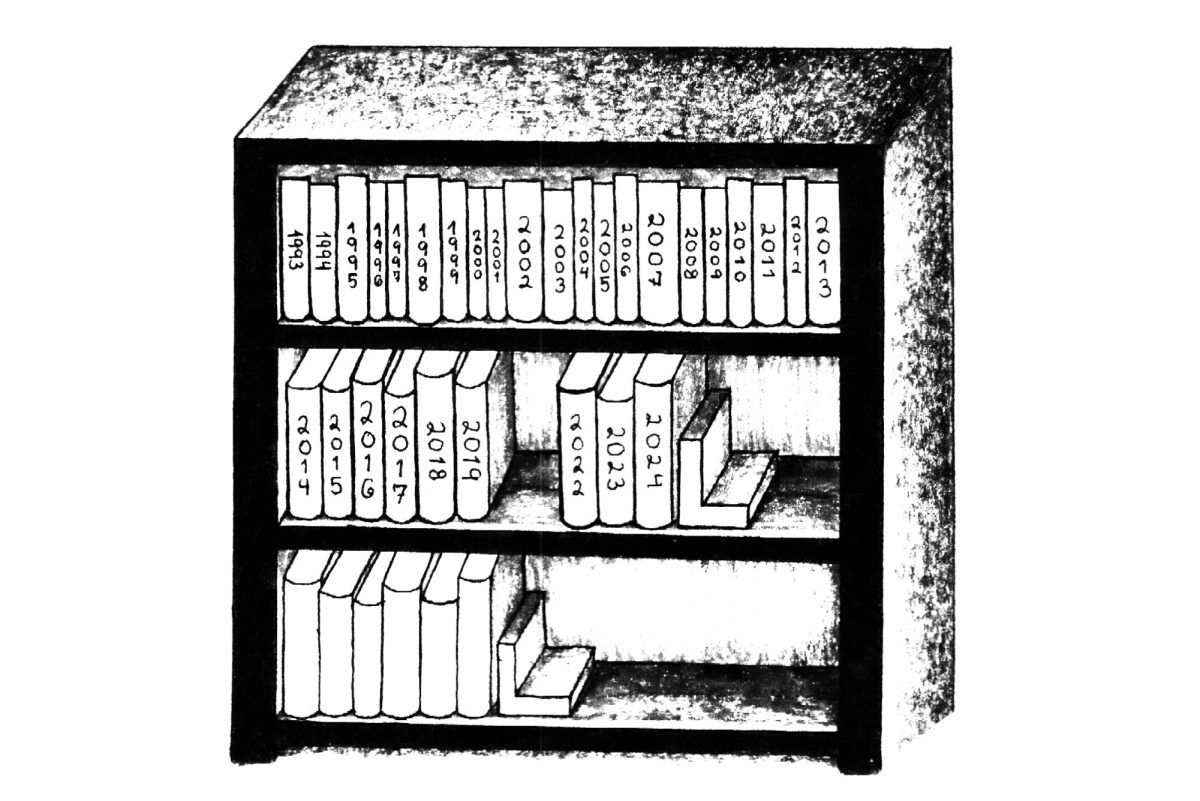“what about the not girls the / sad girls too who said that / we were inferior to you just / cause we don’t rock thongs / manny santos blue and / colorful lace tresses that / grace our sundresses.”
When I wrote this poem, entitled “The Not Girl,” it was in response to the proliferation of a specific Black girl persona in hip hop culture. The poem was not an anti-It Girl anthem. Instead, it was an acknowledgment of a Black and Brown femininity embodied by multiple female rappers. From the Hot Girl (Megan Thee Stallion) to the City Girl (the City Girls) to the Icy Girl (Saweetie), women rappers have introduced identities that reframe Black womanhood through the lens of boundless confidence, unapologetic materialism, financial independence and sex positivity. Though I ardently support these rap artists and the states of being that they honor in their iconic songs, I have lately wondered about representations of other Black girls. Particularly, the Black girls not parading a glamorously extroverted existence on Instagram. The ones not walking around with a beau on one arm and a Birkin bag on the other. I want to celebrate and normalize these women – whom I categorize as the Black Not Girls – because the beauty of Black femininity rests in its fluidity.
But first, who and what is the Black Not Girl? I define her in three ways. The Black Not Girl refers to 1. a Black woman whose personality or appearance does not conform with popular perceptions or expressions of Black femininity, 2. a Black woman considered too awkward, too weird, too quiet, too unattractive, too insecure or too immature and 3. a phrase inclusive of Black girl sub-identities like the Black Soft Girl, Black Sad Girl or Black Blob Girl. What also differentiates her from the Black It Girl persona is that she lacks near-impenetrable assurance and does not perform the kind of sassy, socially savvy Black femaleness that has been overrepresented in media culture.
However, in recent years, different television shows and artists have centered the Black Not Girl. For example, HBO comedy series Insecure, starring Issa Rae of The Mis-Adventures of Awkward Black Girl fame, features a protagonist that laughs at her own jokes and performs mirror raps in her bathroom. Meanwhile, in season one of Euphoria, Zendaya’s character, Rue Bennett, cosplays as a detective with her best friend and tearfully apologizes after kissing a girl she loves. Elsewhere, in R&B, singer SZA grieves her form of Black femininity on her 2017 album, Ctrl, musing: “I wish I was a normal girl, oh my / How do I be, how do I be a lady?” Fellow artist Summer Walker, who has spoken on her struggles with social anxiety, also mourns in her music how being a woman who favors black outfits and face tattoos has made her unlucky in love. Despite such increased visibility of the Black Not Girl, an expectation of charismatic extroversion from Black women still exists in media depictions, corporate settings and other social spaces.
To combat this harmful expectation and further normalize alternative expressions of Black femininity, it is important to highlight the radical importance of the Black Not Girl. Just recently, tennis champion Naomi Osaka withdrew from the French Open over concerns that the tournament’s press obligations would harm her mental health. Osaka, who is known for her shyness and has spoken about experiencing depression, received widespread praise from mainstream media outlets and Black feminist writers for her powerful refusal. Osaka did not only center mental wellness in a player empowerment discourse that has largely focused on free agency and brand-building in the NBA. She also rejected a standard that routinely coerces Black women to perform a charismatic outgoingness that may not reflect their personalities or mental space. Black Not Girls, then, expand notions of different embodied qualities – in this case, femininity, sports personality and advocacy. They also reshape pre-existing narratives and spark conversations that have the potential to revolutionize whole industries.
Though the Black Not Girl is a distinct identity, she still intersects with the Black It Girl in various ways – namely, through unwarranted criticism. For instance, though Naomi Osaka hoped to shield herself from mental health struggles by avoiding sports media, journalists still callously accused her of arrogance. Similarly, rappers Cardi B and Megan Thee Stallion faced relentless backlash from conservative critics for their song “WAP” despite the fact that it championed female pleasure and prompted valuable discussion about sexual health. And, frequently, characters of color portrayed in music or television navigate both their Not Girl and It Girl-ness. On the 2021 album Heaux Tales, singer Jazmine Sullivan spotlights the stories of women who leverage their body capital and struggle with body dissatisfaction. In the same fashion, Starz television series P-Valley, which is about strippers in Mississippi, shows how a deified exotic dancer named Mercedes still grapples with insecurities imposed by colorism, ageism and shame culture. These shared experiences prove that the Black Not Girl and Black It Girl are not entirely separate identities. Instead, they often overlap and reveal the rich complexity of Black womanhood.
I dedicate this piece to the Black girls who do not necessarily exude sexually attractive charm in their actions and aesthetics. To the girls, like me, who lay bonneted in bed binge-watching Atlanta. Though I never hesitate to channel my inner Hottie and recite a Megan Thee Stallion verse at whim, I also find truth and comfort in not being the social butterfly. In not acting out an attractive but exhaustive extroversion, even while the anthemic City Girls song “Act Up” plays in my ear. I could be the Black woman expected of me, the one that the world wants me to be and desires for me to want for myself. But, I choose to be the Black woman that I am.
Zeniya Cooley, a junior majoring in journalism and mass communication, is an opinions writer.


